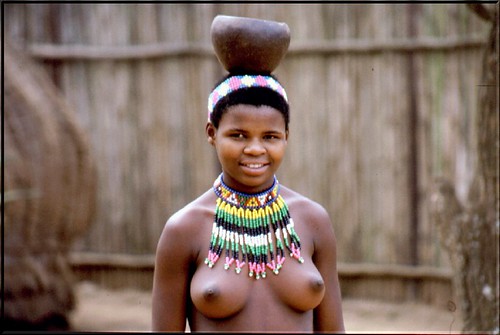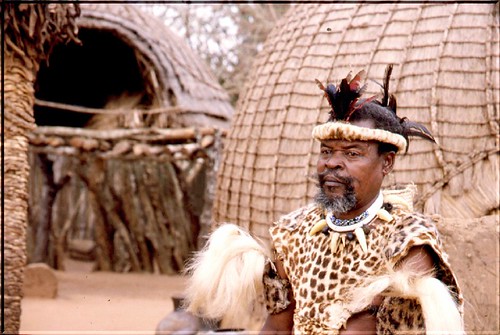There are many kinds of tourism that correspond to the different tastes of tourists. This time we will travel to Africa not to go on safari, but to learn more about their peoples and cultures. We will then ethnographic tourism focused on the Zulu people.
The zulus are maybe the largest independent ethnic group from Africa. They live mostly in Natal, South Africa, but they are found in other regions, such as Lesotho where they remain scattered, in the south of Malawi and in the southern region of Mozambique. Their language is Zulu, belonging to the Bantu branch of the Benué-Congo group, although many speak English.
The Zulu people were an important part in the political and social activities of the XNUMXth century because they were strongly marginalized in South Africa during the apartheid, since its leader Butheleci, was a rival of Nelson Mandela. They were also named as second class citizens.
Its economy is fundamentally based on livestock, but the rearing of large herds of cattle is not a developed and fully organized activity, serving more for precarious subsistence. While the men take care of the livestock, the women take care of the agricultural work. And they are the ones who bear the greatest economic responsibility in the family environment.
Before the arrival of Christian missionaries, the Zulus practiced divination for the purpose of calling upon the ancestors and influencing the spirit. These divinatory acts were performed by the most recognized women of the town. Once in contact with Christianity, Zulu beliefs were mixing with Catholic principles. One of these cases is the independent African sect or church led by Isaiah Shambe, considered the Messiah, and incorporating African traditions. There are also 7 percent of Zulus who are Methodists.
Anthropological studies have devoted numerous studies to the Zulu initiation rites. For example the case of Xhosa fight, whose name comes from a clan named in the same way. This fight or game represents the passage to adult life. Zulu children of 5 or 6 years old start fighting with sticks, thus training for the future. At the age of 15 the family takes the young Zulu to the forest where they will fight against others in boys, as well as face off against wild beasts.
Thanks to the media, one of its most cruel kings became known: Shaka Zulu, who was nicknamed the "black Napoleon" due to his cruelty in battle and his mastery of war strategies. But despite its conflicts and dramatic moments, the Zulu culture continues to cultivate beautiful customs, such as music capable of transmitting its deepest emotions.



Hello, I hope you are well and congratulate you for your page and advice, I would just like to suggest me in which hotel I could stay, thanks and greetings
Hello, the Zulu are capos they taught a lot to Baden Powel The founder of the scout movement!